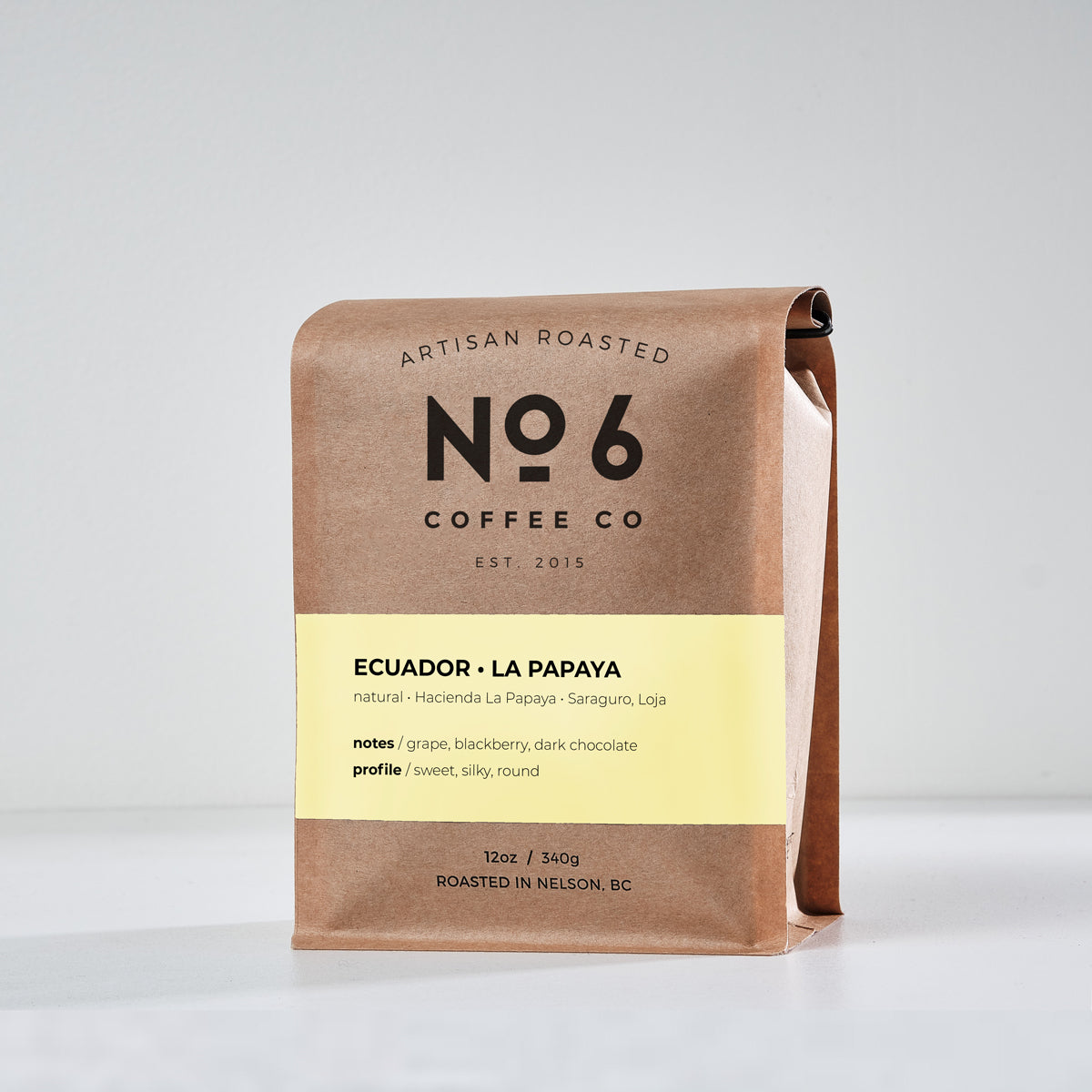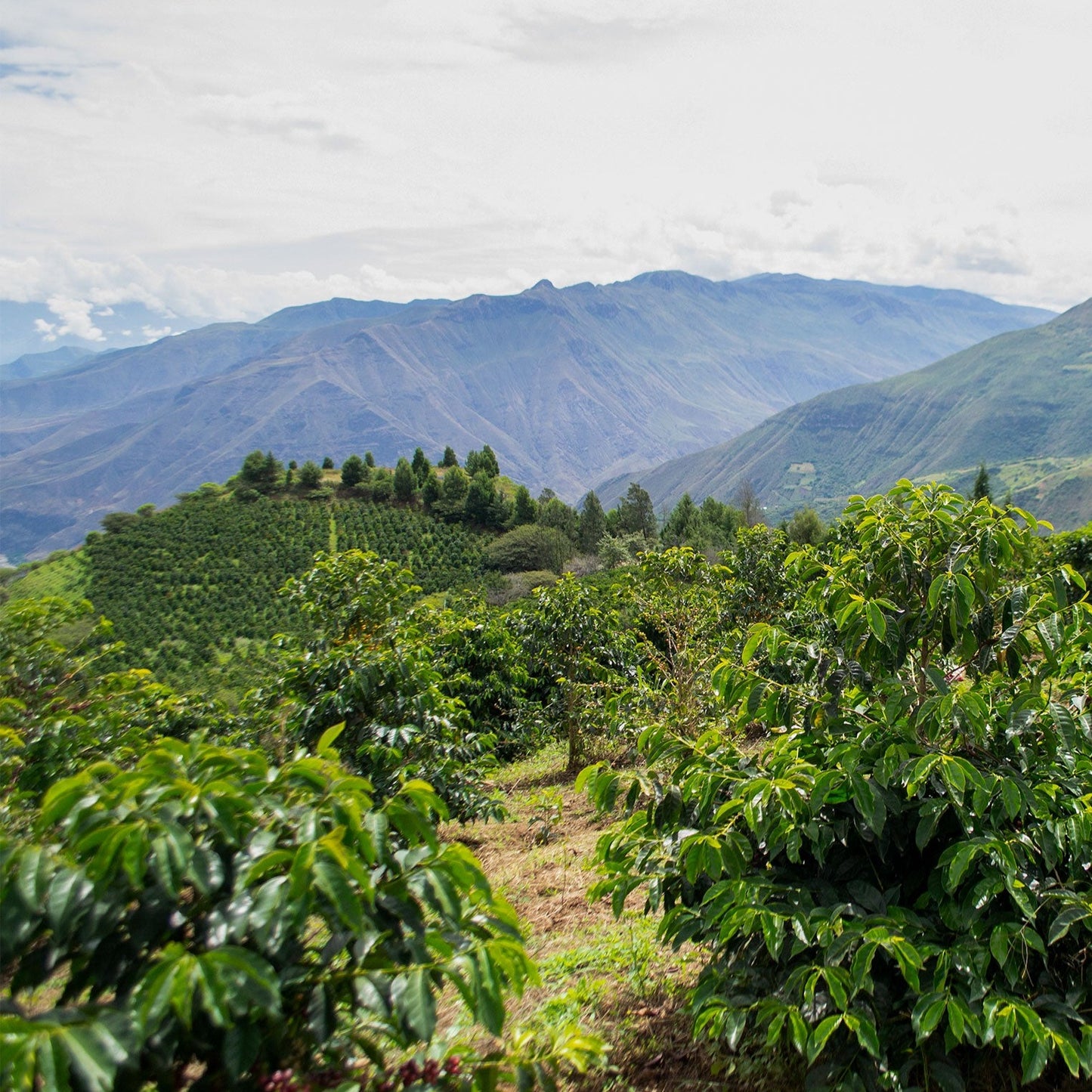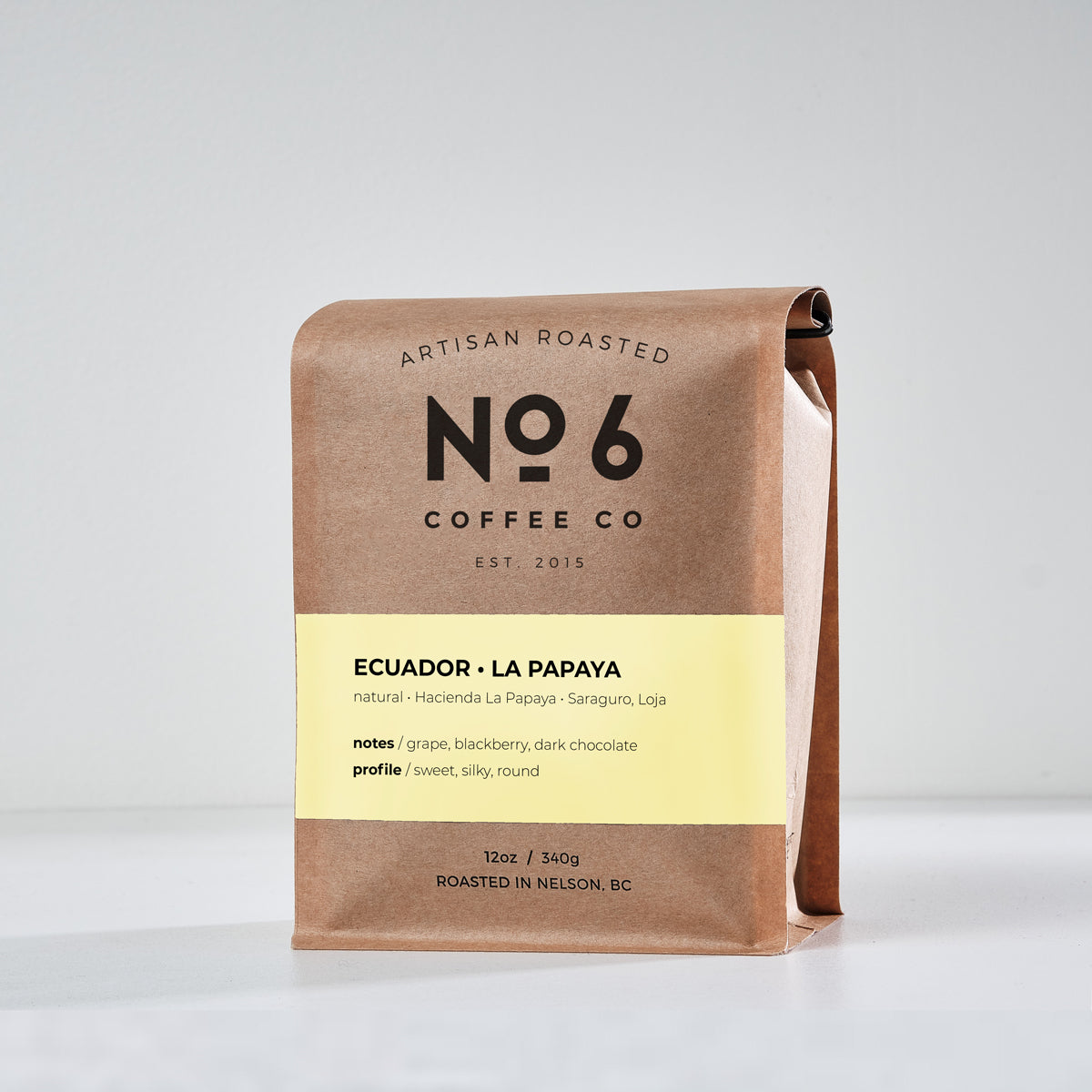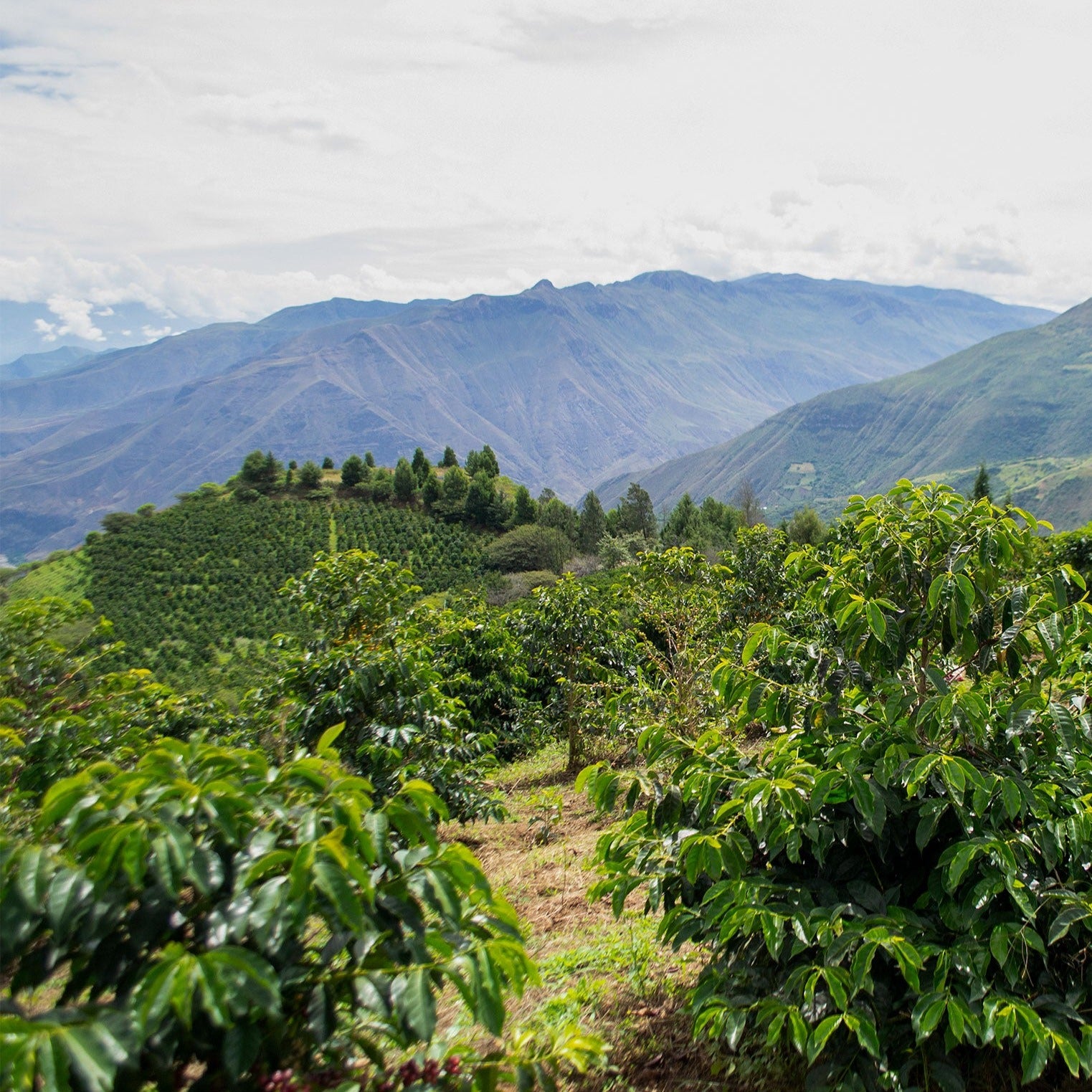La Papaya Typica
La Papaya Typica
| country | Ecuador |
|---|---|
| region | Saraguro, Loja |
| farm | Hacienda La Papaya |
| producer | Juan Peña |
| altitude | 2000 masl. |
| varietal | Typica Mejorado |
| process | natural |
| notes | concord grape, blackberry, dark chocolate |
| profile | sweet, silky, round |
| importer | Forward Coffee |
style
roast level
Hacienda La Papaya is owned and operated by Juan Peña, one of Ecuador's most famous specialty coffee producers. He has been recognized for many top producer awards in Ecuador and throughout the World. His coffee has also been utilized in many Barista Competitions.
Juan grows many varieties of coffee at Hacienda La Papaya, most notably Typica, Sidra, Gesha, with others also in production. He is always actively engaged with processing experiments and tries to find the next best practice or method to make improvements to the coffee he produces. With the support of Segundo Cartuche, the team leader for wet processing and coffee drying, Hacienda La Papaya is able to introduce scientific, refined practices and measurements into their production.
Juan is an active member of his community, allowing neighbours to utilize his facilities, such as the nursery and the micro-mill, to help the overall sector of La Papaya grow and develop. Segundo Cartuche is an example of this, with his own plot of land and his own production, via the support of Hacienda La Papaya.
The coffees produced at Hacienda La Papaya are the result of a meticulous integral process, beginning with the genetics of the seeds in the nursery and knowing the mother plants. Every year the farm experiments with various controlled fermentation and drying, creating some really exquisite flavors in the cup.
Juan Carlos Velez’s farm has a 250-year history. The farm originally belonged to the General Ignacio Torres, who fought alongside Simon Bolivar for Cuenca’s Independence. He got married to a Cuencana lady who was Juan Carlos’ ancestral grandmother from an unknown number of generations back.
Currently on their land, they have multiple varieties of plants such as flowers,
fruits and of course, coffee. Juan Carlos’ parents started planting coffee 20 years
ago using simple methods without a lot of technology. After his father passed away, Juan Carlos took over the business and has improved the farm since he already had agricultural experience. More specifically, Juan Carlos is also owner of the largest rose farm in southern Ecuador that exports over 10 million roses annually.
Juan Carlos, 60 years old, is a civil engineer with a Business Administration
Master’s Degree. He was a member of the Chamber of flower production, and
currently a member of Expoflores. Despite these responsibilities and other
activities as well, his family continues to work with coffee because of their joy and
passion for it.
The high quality of their coffee is the result of great care given to their land, especially since the land was always fixed for agricultural purposes. On the farm, different types of fruits have been planted such as guavas and oranges. They use a drip irrigation system which helps give the plant the most favorable environment for growing. This type of irrigation will also help prevent any type of fungus from growing on the leaves or the fruit.
The farm sits at an altitude of 1700 MASL. The closest town is La Union, 5 kilometers away. Bordering the farm are other properties, including La Finca Proyecta to the North and West, 4 other farms to the South, and Chantaco Canyon to the east. The farm also has the perfect weather at the perfect time. Like the town of La Papaya, this area receives 8 months of sun from May to December. It’s perfect because coffee plants need limited water or less than other plants. The rainy season goes from January to April. Being close to the equator is another advantage for the farm. Plants receive 12 hours of sun a day the 12 months of the year, which provides extraordinary conditions for better quality coffee. The daily temperature range is also important for growing coffee. The temperature could reach 35°C during the day and at night it could reach 13°C. The temperature during the day is very important because it affects how the coffee plant produces its own sugars and affects its overall growth as well.
Juan Carlos met Juan Peña in 2014 through the flower business. They developed a good friendship, and they've been working together innovating with coffee. Through their friendship, Forward is able to purchase Juan Carlos coffee thanks to CafExporto, the exporting arm of Juan Peña and Hacienda La Papaya.
Schedule
Schedule
Our weekly ordering cutoff is Tuesday at 9am. All orders placed before this time will be roasted, packaged and shipped by Wednesday. All orders received after this time are subject to shipping the following week depending on overflow.
Shipping Rates
Shipping Rates
Our current shipping rates are as follows:
Local Delivery Rates within 2km
$5.00 for orders between $0-$20
$2.50 for orders between $20-$40
FREE for orders over $40
Canadian Shipping (with tracking)
Standard rates for orders between $0-$36
$10 for orders between $36-$75
FREE for orders over $75
US Shipping (with tracking)
Standard rates for orders between $0-$100
FREE for orders over $100
Packaging
Packaging
100% Recyclable
Our coffee bags are made of 100% recyclable plastic and widely accepted at recycling depots across Canada, making it easy for you to responsibly dispose. Its recyclable materials ensure that it can be repurposed efficiently, contributing to environmental sustainability efforts and promoting a circular economy model.
Volume Discounts
Volume Discounts
We're dropping the bomb on exclusive volume discounts on our entire coffee collection. Mix and match any single origin and/or blends and get the following discounts automatically applied at checkout.
| 15 - 44 bags | 10% off |
| 45 - 89 bags | 15% off |
| 90 - 179 bags | 20% off |
| 180+ bags | 25% off |
Out of stock
15 bags, mix & match = 10% off
Discounts automatically applied at checkout.
Couldn't load pickup availability





